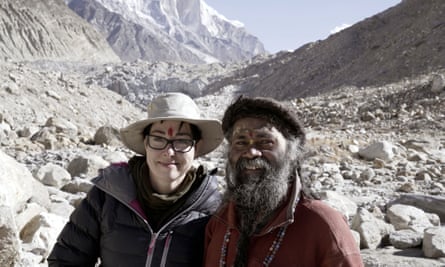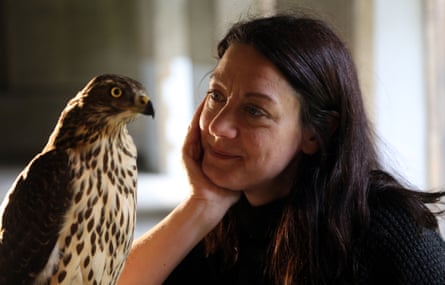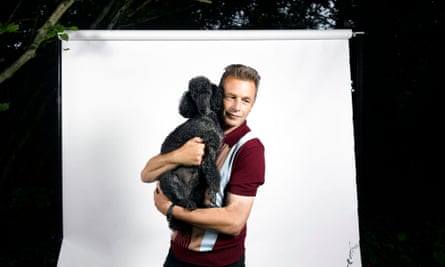Gunpowder (BBC1) | iPlayer
The Ganges with Sue Perkins (BBC1) | iPlayer
Chris Packham: Asperger’s and Me (BBC2) | iPlayer
H is for Hawk: A New Chapter (BBC2) | iPlayer
The Vietnam War (BBC4) | iPlayer
It is the filthy England of 1603, than which there were few lands filthier, and you can practically smell the dung, both animal and human, on the streets, but the new king, James I and VI, encounters only sweet nosegays and daintily wafted hankies. There’s no doubting that Jamie Saxt, the “wisest fool in Christendom” did much to continue that era’s shining cultural age – Shakespeare, Donne, Bacon and the other lads, and then there was that Bible. One area, however, on which he’s generally agreed to have absolutely manked up, not knowing his VIs from his Is, dithering wildly and sweating like Boris on a polygraph, is Catholicism.
He fervently sought peace with Spain, but was rather pamperedly weak-willed and in the end wholly outmanoeuvred by Robert Cecil, who wanted to hang, draw, quarter, burn or crush, though preferably all five, every papist in the land. Thus is the stage set for Gunpowder, the first episode of what looks to be a rather fine three-parter was rolled out last night, with Kit Harington, him off of Game of Thrones, taking (rightful) centre stage as Robert Catesby, the architect of the Catholic fightback.
Guy Fawkes gets only a tiny look-in, as a knifey thug, which is pretty much as it should be historically. Harington dominates, smoulderingly, and Liv Tyler as his cousin Ann Vaux is tremendous. But the chief scene-stealer is Mark Gatiss as Cecil. He simpers, he wheedles, he has something wrong with his neck, he casually orders up unconscionable violence… he’s a tremendous villain.
Be warned, though. It’s not an easy watch for those who might faint at the sight of blood, or heads being cut off and dipped in buckets of tar, or old women being stripped and tied under a barn door, on to which ton weights will be dumped: in short, it’s not an easy watch for those who get perhaps too easily confused between real life and “people doing acting”. Nasty, visceral and gutsy, as, I’m so sorry to say, is history, and truth.
Moving to the more pleasant sunlit uplands of this century, I was immensely taken by The Ganges with Sue Perkins, despite my having thought I’d had my fill of famebots on overseas jollies. “I know everyone always says this on telly, but this really is an emotional journey,” she began with her sardonic raised eyebrow, and thus established herself very much as not a famebot, simply a tremendously accomplished lass who’d, incidentally, recently lost her dad. Journeying to the source of Mother Ganges, she got altitude sickness, threw up often and messily, panted heavily – she was all of us, Everylass, but with, as always, a smidgen more wit and empathy.

She didn’t make overmuch of her “shit year so far” – though her voice did break, admittedly at nasty altitude and with trembling tiredness, when she vouchsafed: “You don’t know my dad, but he’s someone who’s worth grieving over”, rather a fine and understated epitaph I thought. And went on to meet, with her unique mix of caustic bubbliness, various yogi and shamans and dear sweet snotty children down the length of the Ganges, which, this being the BBC, was of course a visual treat. In terms of famebot travelogues, this is perhaps the best of 2017: subtle, elbow-nudging in a good way, never less than reflective, ultimately joyous. Sue could talk to anyone, tease out the fibres, tease out the tangles.
The much-heralded H Is for Hawk: A New Chapter featured another much-mourned father in the shape of Helen Macdonald’s dad, photojournalist Alisdair, but was altogether a different proposition. It was elegaic, beautifully written, stuffed with the kind of poetic lines at which you might shiver when reading on the page… I think it should have stayed on the page rather than been transferred to TV. Helen bought another hawk, and was smitten, and it was all lovely, but ultimately a poetic 10-minute tale of woman buys bird, birds don’t understand people, isn’t that magical. Crammed into an hour.

Chris Packham: Asperger’s and Me also had hawks, but was possibly the finest thing to have aired last week. Packham, who is “high-functioning autistic”, in the first half told us (reluctantly) how hard his life had been as such – horribly bullied, three suicide attempts – and in the second half went searching for “cures”. Packham, the enthusiastic wildlife presenter, loves animals more than humans. He is shruggingly happy to possess this knowledge. Doesn’t care. His enthusiasm shines out of everything he presents, though it anguishes him to even be in front of cameras, let alone people, yet he did people with Asperger’s a vaulting amount of good by agreeing to this brave programme.
In the second half, among mad researching Americans trying to force-change the autistic brain, he concluded that there is no cure other than asking society, politely, to learn to better cope with Asperger’s in its midst. Silicon Valley has embraced this, and frankly so should you and I: faced with someone in a cafe or bar who knows everything about something, or some corporate drizztard who knows nothing about everything… your call. An amazing programme that should change outcomes.

“The late 60s were a confluence of several rivulets… the whole movement towards racial equality, the environment, the role of women… anthems provided by the most brilliant rock’n’roll music I can imagine. I don’t know how we could exist today as a country without that experience, with all of its warts and ups and downs – that produced the America we have today. And we’re the better for it,” said Merrill McPeak (US air force), a wise and now old man, and, despite being undercut by the very Britishness of the music – Led Zep’s Dazed and Confused, the Beatles’ While My Guitar Gently Bores – I would have to concur: America would not be America without Vietnam. The wonderful BBC4 series The Vietnam War, rewatchable itchingly often, last week ran between two springtimes, those of 1969 and 1970, rather a crucial span in both that war and in America’s century.
And reminded us of grim truths. The Nixon/Kissinger strategy of surrendering without being seen to do so. Sy Hersh’s breaking of the news of My Lai, which, along with Ronald Haeberle’s astonishing photos, convinced the world but most importantly America that the war didn’t require to be lost or won, but simply ended. Lt William Calley led the murder of hundreds of old men, children and women in four hours in My Lai: “throwing them in wells, machine gunning, taking a lunch break, doing it some more”. He is now a retired gemologist in Atlanta. The sweat on Nixon’s upper lip, lying on TV to the world, tells its own truth.

Comments (…)
Sign in or create your Guardian account to join the discussion